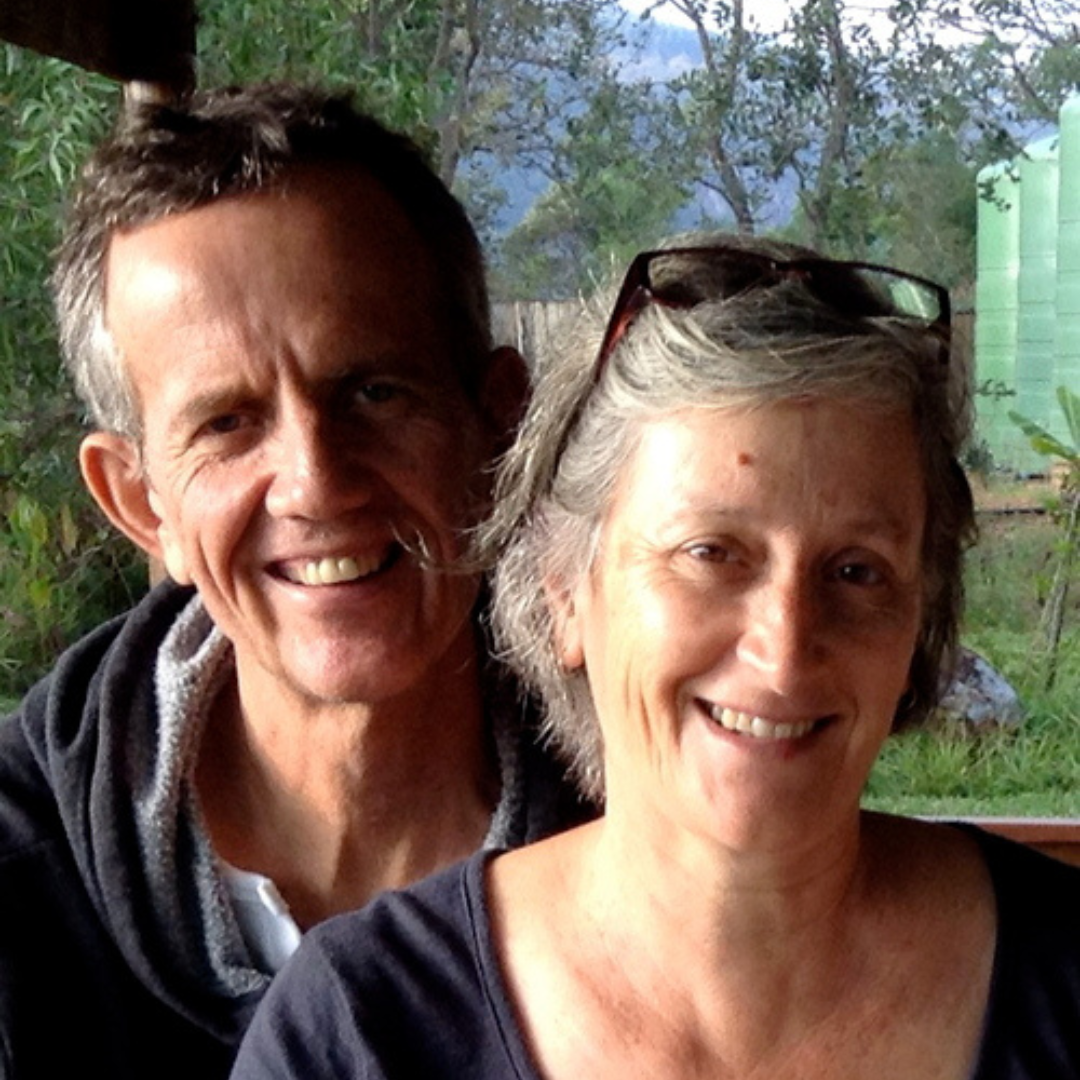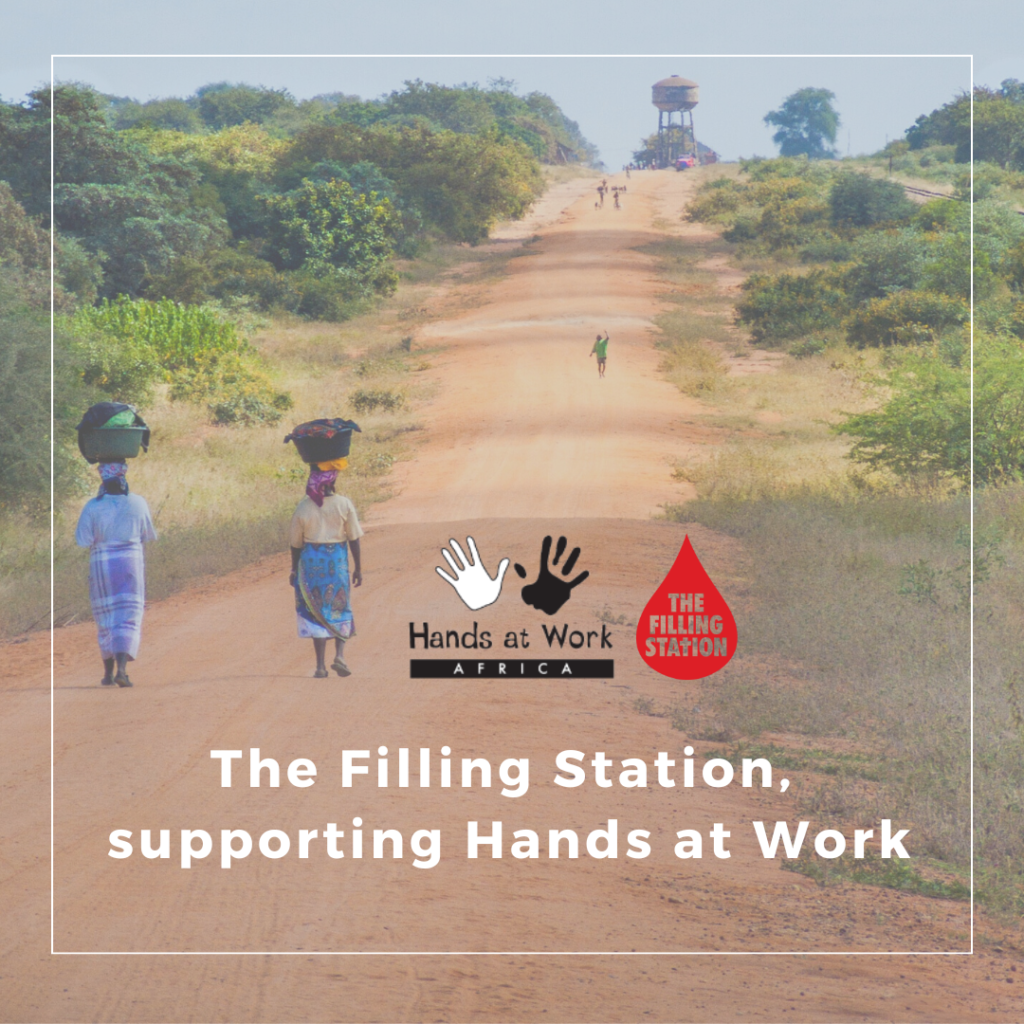George Snyman, CEO of Hands at Work in Africa, to speak at this week’s FillingStation@home!

“It all started when two simple, white, middle-class South Africans found freedom in powerful servanthood and unconditional love.”
We have the pleasure of welcoming George Snyman, CEO of Hands at Work to this Wednesday’s FillingStation@home. We, at the Filling Station, support Hands at Work through our monthly giving.
We have also sent volunteers out to their White River base in South Africa. You can read a sample blog HERE from a volunteer.

About George
Adapted from Hands at Work’s website
George & Carolyn Snyman were a seemingly ordinary, white, middle-class couple who started their young married life in a leafy suburb of Pretoria, South Africa’s capital, at the height of the Apartheid era. George worked in the rapidly evolving IT industry and Carolyn in the finance sector.
Then, quite suddenly, George radically met Christ. “I grew up a ‘Christian’,” George says, “but this time I met Jesus face to face!” Shortly after his encounter with Christ, Carolyn also surrendered her life to Jesus. “Everything changed in our lives,” George remembers.
At around this time George met a black pastor named Hezekiah from Hillbrow, the inner city of Johannesburg. Together they visited black townships on weekends.
George was exposed to a great deal of suffering amongst the poor.
Faced with this reality, George and Carolyn started grappling with what it meant to be a Christian in an affluent, white suburb whilst, simultaneously, so much hardship was unfolding in South Africa’s marginalised townships.
Reaching a tipping point after a few years, George and Carolyn decided to give up their comfortable existence. They sold their home, packed their belongings into their car and, with a mere US $20 per month to support their family of five, they made the four-hour journey to the Africa School of Missions on the outskirts of White River.
“It was fun and liberating to just give all of our stuff away to whomever wanted it!”
– Carolyn Snyman
Three years later, during his final year as student of theology and development, George decided to walk through Africa.
Using the most basic local transport and often traveling on foot, through Southern Africa: South Africa, Zimbabwe, Mozambique, Malawi and Zambia. Staying in impoverished villages he was faced, for the first time, with the seemingly hidden suffering of communities that were being devastated by the HIV/AIDS pandemic. George started wrestling with what the Church’s response to poverty and suffering should be.
Once they’d completed their studies, the family travelled to the province of Kwa-Zulu Natal, infamous for its high rates of HIV/AIDS and violence. They started serving, simply, by feeding children who were scavenging for food on rubbish dumps.
“And that’s how we started out,” he says.
“Wherever we went we found people, mainly young people in their twenties, dying in their huts. We did not understand what was happening and it took some time before we learned more about AIDS. Nobody spoke about it, especially not the Church. Everyone just continued with life while thousands of people were dying.”
– George Snyman
As medical research provided better medication for people with AIDS to stay alive, George and Carolyn started to focus more on orphan care.
“They are a lost generation, growing with 180 000 new orphans each month. It’s clear and undeniable: the Bible clearly states that these orphans should be cared for by Christians,” George says. “We are convinced that the Church is the only answer to this pandemic.”
As Hands at Work was birthed, local and international volunteers joined George and Carolyn in their venture and George recognised that the same paradigm shift he had experienced, was playing out in the volunteers’ lives.
It became an unwavering principle of the Hands at Work motto: that it exists not only to help the Church in Africa respond to the Biblical mandate to look after the poor, but that the Hands family would be a prophetic voice, stirring the Church across the world to consider their lifestyles.
“I saw so many lives changing as Christians from outside Africa came to serve, and in doing that they discovered Christ more deeply than they’d ever known. In fact, many found Christ for the first time in Africa,” George says. “It was never the government’s responsibility to care for the orphan and the widow, but Christians’.
“We have a saying at Hands,” George adds. “We say we are before we do.”




